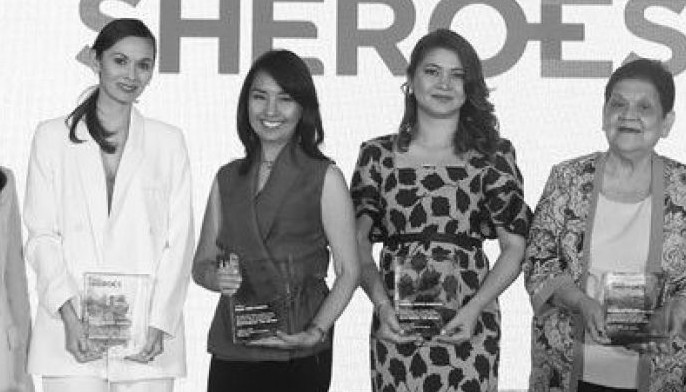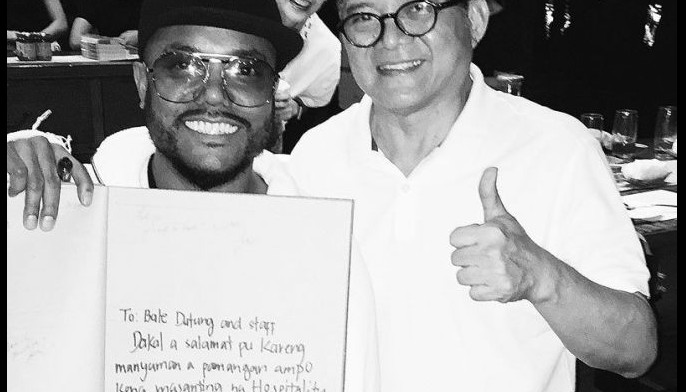Linked by the sea
MANILA, Philippines - All life began at sea. Billions of years ago, the world’s oceans supported the development and growth of the first single-celled organisms in underwater hydrothermal vents, which through evolution, led to the existence of human beings and other living organisms on the planet.
Today, more than three billion years later, the seas continue to support our existence and serve as a link that binds humankind together.
Among the millions of Filipinos that rely on the seas are 1.7 million fisherfolk who are among the poorest sectors of society. The Senate Committee on Agriculture pegged poverty incidence among fisherfolk at 43.2 percent in 2016, with a fisherman earning only P178 per day from fishing.
James Mata, 29, of Barangay Guiwanon, Bantayan, Cebu has been fishing in the waters of Bantayan Island for nine years now. Life as a fisherman has always been difficult, he says, but more so following the onslaught of Typhoon Yolanda in Bantayan Island.
With their boats destroyed, fishermen like Mata lost a vital link to the sea.
Luckily, Gawad Kalinga (GK) came to the picture and provided them with new boats through its Balangay project. Beyond giving outrigger boats, GK also wanted to do more – it wanted give the fisherfolk a sustainable livelihood that can support them for a long time and lift them out of poverty.
For such an endeavor, GK sought the services of one of its protégés, social entrepreneur Jesalee Rose Ong. Having worked on various GK projects and villages in Central Visayas, she understood the plight of Visayan fisherfolk, particularly in Bantayan Island.
“After Yolanda, they had plenty of boats from various donors. And yet, their condition remained the same. They would go out to sea for months to catch fish and then sell their catch at inexpensive prices to the market, the income from which isn’t enough to support their families,” Ong said.
To change this, she convinced the fisherfolk to establish the social enterprise Fishers & Changemakers, Inc. (FCI). She encouraged the residents to pool their finances together to raise capital for the social enterprise, thus making them shareholders.
With the amount it gathered, FCI engaged in packaging and selling dried seafood, which it sells to various food retailers under the brand “Balangay’s Best”.
Currently, the brand’s selection of dried seafood includes Darling Danggit (rabbitfish), Papa Pusit (squid), Baby Bangsi (flying fish) and Mommy Dilis (anchovies). There is also Seafood Halo-Halo, which is an assortment of different dried fish varieties in one pack, as well as Sissy Spanish-style Sardines.
At first, FCI looked like just another commercial fishing company that sells dried fish. But the use of sustainable fishing practices set it apart.
To establish such practices, Ong approached conservation group Rare International, represented in the Philippines by its vice president, Rocky Sanchez-Tirona. Rare International taught the Bantayan fisherfolk about sustainable fishing under their program dubbed “Fish Forever”.
“We teach the fishers to catch the fish sustainably, using non-destructive practices. To avoid overfishing, they are educated about which varieties of fish are in season; those that should not be caught and those that can serve as alternatives if one variety is off-season. The fishers are taught how to clean, dry and prepare the fish according to FCI’s standards,” Tirona explained.
As an incentive to fisherfolk who caught fish using sustainable means, FCI buys the fish from them at a higher price, and this in turn serves as the fisherfolk’s ethical wage – enough to support their daily needs such as food, education and health.
Fishermen like Mata can now send their children to school from his shares and earnings from FCI.
“The fishers would tell us that FCI has been a great help to them,” Ong said.
Since Balangay’s Best products were launched in the market, it has reached retailers’ stores such as Echostore, Holy Carabao, Islands Pasalubong, Real Food, GK’s Enchanted Farm and Vista Mall’s All Day Supermarkets. A number of restaurants and cafés such as Spell Kitchen, Sari Café, The Coffee Project and Toyo Eatery, also sell or serve food made with Balangay’s Best products.
Last Feb. 22, FCI, together with representatives from partner fishing communities, its network of retailers, and supporting organizations such as Rare International, Gawad Kalinga and the British Council met at the Marco Polo Hotel in Pasig City for the launch of new products – Baby Bangsi, Seafood Halo-Halo and Sissy Spanish-style Sardines.
Together, they renewed their commitment to help all fisherfolk have access to a sustainable livelihood that does a lot to sustain our environment at the same time. It is a commitment and a responsibility brought about by the common bond that links them – the sea.
- Latest


























